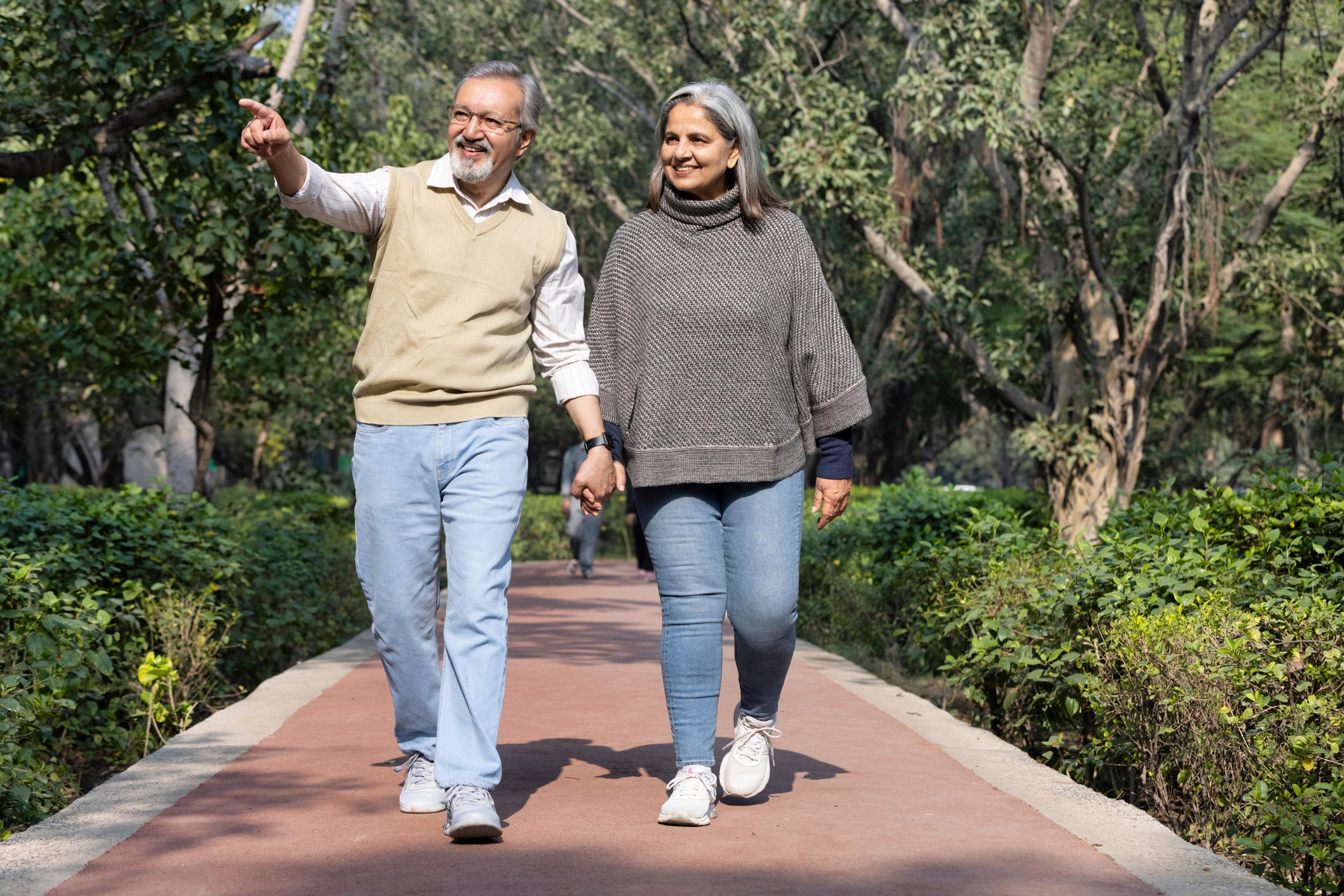Aging with Optimism: The Benefits of Positivity and Aging

Blue Daily
| 3 min read

Recent research supports the idea that our mindset and attitude toward aging can have real impacts on the aging process and our health. Aging Americans who have a good attitude and high level of satisfaction with their aging process have higher levels of cognitive function, physical activity and lower levels of depression, according to a 2022 study from Harvard T.H. Chan School of Public Health.
Benefits of a positive attitude on aging
The effects of a positive outlook toward aging include boosts to physical health, mental health, social health, and overall well-being. According the 2022 study from Harvard, those aging adults who were most satisfied with their aging and had positive outlooks showed higher levels of physical activity, better cognitive function, and lower risks of depression, heart disease, diabetes, stroke and cancer.
Relatedly, a negative attitude toward aging, including assumptions about poor health is inevitable during aging, can have a negative effect on overall health while we age. Tips for keeping a positive outlook on aging
Since your outlook and beliefs about aging matter to your overall health, it’s important to take stock of how you feel and your beliefs about aging. Feelings and beliefs can be changed for the better, so don’t lose focus on how positive aging can be. Here are some tips for building and keeping a positive and optimistic outlook while you age:
1. Focus on a sense of purpose
After retiring and after raising a family, many older adults struggle to find a new normal and a new sense of purpose. Consider what is important to you and your ideals and derive a sense of purpose. This can mean time spent with family, outdoors, improving your neighborhood and local community, or many other things.
2. Beware of negative stereotypes and thoughts about aging
Conversations about aging can sometimes be gloomy and full of misconceptions or preconceived notions about quality of life and health as we age. Make sure to remember how much of an effect a positive outlook on aging can have and try to share that energy instead. If you catch yourself buying into negative ideas about older adults or the again process, question those ideas and avoid dwelling on the negative.
3. Seek out hobbies and pastimes
Similar to losing a sense of purpose after retirement, some older adults struggle to find ways to fill their time in ways that feel meaningful. This is a great opportunity to revisit and get to know old hobbies or pastimes that may have gone by the wayside, or to learn new hobbies. Picking up a musical instrument, a sport such as pickleball or handball, birdwatching, hiking, and volunteer opportunities are a few popular examples, but find something that works for you and that you enjoy. This can also be a great way to stay social and to meet new people.
4. Be involved in your community
Volunteering can be a great social way to spend time, but it also has the benefit of being good for those around you. According to the National Alliance on Mental Health, volunteering can reduce stress, increase happiness, boost confidence, and help with a sense of self and purpose. Volunteering can introduce you to people you would otherwise not meet and connect you with the community around you. There are often mentorship and tutoring opportunities for older adults who have skills, experience, and wisdom to share.
Related Links:
- How Kids and Seniors Can Keep Each Other Healthy (mibluesperspectives.com)
- The Importance of Intergenerational Relationships (mibluesperspectives.com)
- Older Gay Adult Credits Detroit Hannan Center’s Inclusive Mental Health Services, Intergenerational Community Programs with Helping Him Through Personal Struggles (mibluesperspectives.com)





